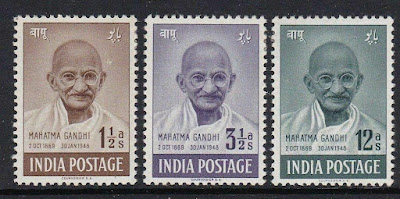
The "Night Air Mail Service" was introduced on 30th January 1949 by the then Communication Minister, Mr. Rafi Ahmed Kidwai, to rehabilitate the deteriorating postal service. When the Railway Mail Service and Motor Mail Service had reached saturation point, the only option left was to introduce Air Mail Service for the First Class Mail. As day time air service were running with full loads, night air service were planned. Before this period, night flying was not safe in the absence of security measures and equipment at Airports. The Night Air Mail scheme was an experiment towards night flying in India and for the introduction of the "All Up Scheme". Initially only mail was transported on N. A. S.
Under the N.A.S., the 4 principal cities of Bombay, Calcutta, Madras and New Delhi, which are in 4 different corners of India, were linked with Nagpur. 4 night planes will leave, one each from these cities, for Nagpur, with a mail load from their region and will return to their home base in the early morning, after exchanging the mail at Nagpur.
The fight schedule was as follows as per Postal Notice No.65 dated 27.1.1949:
Night flying reduced considerably the time factor on mail from one place to another. Aircraft flying from Trivandrum to Srinagar used to make night halts at Madras and New Delhi. Now the mail can reach its destination on the next day.
It was decided that all classes of surcharged air mails will be forwarded by the Night Service wherever this provides acceleration in transit compared to other services. The Night Air Mail charges remained same which were prevailing that time viz., 1 anna for Envelopes and ? anna for Post Cards.
To give more volume of mail to N.A.S., it was decided to utilize, these special overnight services, for conveyance of Post Parcel by air ( to be introduced for the first time) in addition to Letter Mail, from the same date. The transmission by air of such parcels being restricted to these overnight services.
This scheme was strongly opposed by airline operators on various grounds. They wanted a guaranteed minimum payment, but the Government was not prepared to give such a guarantee, wishing to maintain the existing rates of carriage. Only Indian Overseas Airlines offered to work on the Government conditions.
The Air Transport Licensing Board granted a licence for operation of Night Airmail Service to Indian Overseas Air Lines Ltd.., for one month from 30th January 1949. At that time Indian Overseas Airline Ltd., had traffic offices at Ahmedabad, Bangalore, Bombay, Calcutta , Hyderabad, Jabalpur, Kanpur, Lucknow, Madras and Nagpur. The routes on which this Company was operating at that time were,
Bombay - Nagpur - Calcutta - Nagpur - Bombay.
Nagpur - Bangalore - Madras - Bangalore - Nagpur and
Nagpur - Jabalpur - Allahabad - Kanpur - Lucknow - Kanpur - Allahabad - Jabalpur - Nagpur.
source: https://stampsofindia.com/readroom/b016.html











